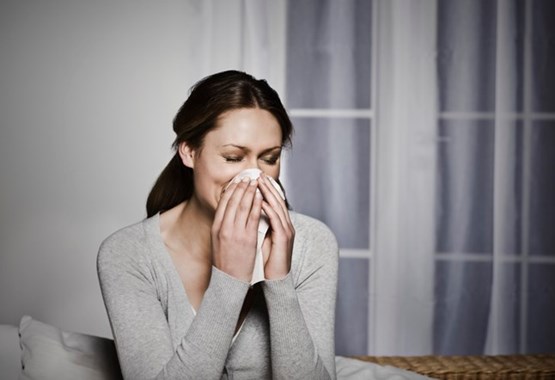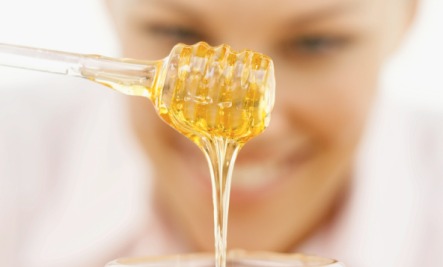Hay fever comes with some of the worst symptoms. Some of these are itchy eyes, constant sneezing and a runny nose. The condition is depressing enough on its own. If you add pregnancy on top of it, then you're up for real confusion and stress as you are not sure of which drugs you can take when pregnant. There are, however, some options to deal with hay fever while pregnant to avoid health problems for you and your child.

Know the Signs of Hay Fever
Before you even consider self-treating, you need to be sure that you do have hay fever and not just a similar disease. Common symptoms of hay fever include:
- Running nose
- Nasal congestion
- Itchy, red and watery eyes
- Sneezing
- Coughing
- Itchy nose, throat and mouth
- Swelling and blue color under the eyes
- Feeling tired
- Post nasal drip
Are the Symptoms Any Different During Pregnancy?
During pregnancy, the condition tends to be more strenuous for the mother. Hormone changes during pregnancy may put pregnant women at higher risks of getting cold and congestion, which may get worse if they have hay fever also. Pregnant women are also more likely to get hay fever because pregnancy affects the immune system, and hay fever basically results from an overreaction of the immune system. Worse still, a pregnant mother is not usually allowed to take some of the common medications.
Treating Hay Fever While Pregnant
Hay fever can still be treated safely during pregnancy. You might need to consult your GP before starting off on any treatment. The most commonly used treatment for hay fever are antihistamines. However, some are dangerous to use on pregnant women. In some cases, your doctor may advise you to treat the condition without the use of drugs. Usually, pregnant women with hay fever are advised to first try nasal drops, eye drops or nasal sprays.
1. Nasal Corticosteroid Sprays
These sprays are probably what your GP will advise you to use first, and will help to reduce the stress of the condition by unblocking your nose and reducing inflammation. In two or three days of using these sprays, you should be experiencing results. Nasal corticosteroid sprays are a better option for pregnant women since only very small amounts can pass to the baby. Your doctor will also give you a dosage that should ensure the safety of your child. Budesonide (Rhinacort) and Fluticasone propionate (Beconase) are some of the nasal corticosteroid sprays available over the counter.
2. Antihistamines
Antihistamines help to control hay fever by preventing the release of chemicals that cause the allergic reaction. Some antihistamines are dangerous for pregnant women, but others are more or less harmless to both the mother and the child. It is advisable to consult your GP before taking any antihistamines to control hay fever while pregnant. Dexchlorpheniramine maleate (Polaramine) is normally used in the first three months of pregnancy, while Loratidine (Claratyne) is more commonly used in the last 6 months of pregnancy.
3. Sodium Cromoglicate
This drug comes in the form of nasal sprays, nasal drops or eye drops. The drug has to be used several times in a day for results to be experienced. Unlike other treatment options, sodium cromoglicate is considered harmless during pregnancy. With that said, it is advisable to consult your GP before using the medication.
4. Chlorphenamine (Piriton)
Another option that works effectively to treat the symptoms of hay fever is piriton. As a pregnant woman, you should use piriton under the guidance of your doctor or GP. Generally, using the drug when you are very close to giving birth is discouraged as it can affect the child. You should also avoid using piriton when you intend to engage in activities such as driving, because the drug can make you drowsy and reduce your level of alertness.
Note: When pregnant, it is advisable to avoid using decongestant drugs to treat hay fever, especially over the first three months of pregnancy. Instead of using decongestants, you can try using saline drops. Saline drops are available in many chemists.
Home Remedies to Help
You can choose to avoid any possible health risks by treating hay fever while pregnant without the aid of medications. There are a number of methods you can employ to achieve this.
First, you can try eating honey. Take a teaspoon of honey every day and with time, your body should be able to develop a natural defence against pollen. Usually, hay fever is caused by an overreaction of the immune system to external stimuli such as pollen. Taking honey should therefore help you prevent the development of hay fever.

Inhale hot steam. Another home remedy you can use to treat hay fever is hot water with drops of menthol or eucalyptus. The mixture will produce steam which you should inhale.

Monitor pollen count in house. To prevent the development or elevation of the condition, you should also take time to check the pollen count every day to decide whether or not you should expose yourself or simply stay indoors for the day. The pollen count tells you the average amount of pollen in a square meter of air. A high pollen count is over 50, and a low pollen count is anything below 30. Usually, the pollen count will be very high in the evening. It has been observed that most people develop symptoms of hay fever when the pollen count goes over 50.
Keep a good diet. These diet tips should also help you treat your hay fever symptoms:

- Increase your intake of vitamin C. Vitamin C and flavanoids will both help your body fight the symptoms of hay fever.
- Consume lots of dark green vegetables. These are high in beta carotene, which will help cleanse your bowels. In addition, dark green vegetables are rich in vitamin C.
- Take garlic. Garlic helps to reduce the level of catarrh in the body.
- Avoid consuming processed foods and packaged foods.
However, when pregnant, you also need to consider your doctor's advice regarding your diet.
